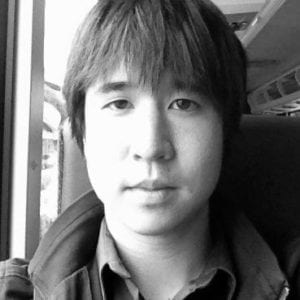 Hair loss can affect confidence, appearance, and overall quality of life for both men and women. Residents searching for trusted hair loss clinics in Poolesville VA often seek professional guidance, accurate diagnosis, and proven treatment options. Virginia Hair Transplant provides comprehensive hair loss evaluations and advanced restoration solutions for individuals throughout the Poolesville area and surrounding communities.
Hair loss can affect confidence, appearance, and overall quality of life for both men and women. Residents searching for trusted hair loss clinics in Poolesville VA often seek professional guidance, accurate diagnosis, and proven treatment options. Virginia Hair Transplant provides comprehensive hair loss evaluations and advanced restoration solutions for individuals throughout the Poolesville area and surrounding communities.
Hair loss can occur for many reasons, including genetics, hormonal changes, aging, medical conditions, stress, or certain medications. Because each cause requires a different approach, working with an experienced hair loss clinic is essential to developing an effective and personalized treatment plan.
Understanding Hair Loss and Its Causes
Hair loss is not a one-size-fits-all condition. Some individuals experience gradual thinning over time, while others notice sudden shedding or patchy hair loss. One of the most common forms is androgenetic alopecia, which affects both men and women and typically follows predictable patterns. Other forms, such as telogen effluvium or alopecia areata, may be temporary or related to underlying health issues.
According to the Cleveland Clinic, identifying the cause of hair loss early allows for more effective treatment and better long-term outcomes. A professional evaluation helps determine whether hair loss is progressive, reversible, or best addressed through medical or surgical intervention.
What to Expect From a Hair Loss Clinic
A reputable hair loss clinic focuses on diagnosis, education, and individualized care. At Virginia Hair Transplant, patients receive a comprehensive consultation that includes scalp examination, hair density assessment, and a review of medical history. This information is used to determine the most appropriate treatment options based on each patient’s condition and goals.
Hair loss clinics may offer a range of solutions, including non-surgical treatments, medical therapies, or surgical hair restoration. The goal is not only to restore hair but also to preserve existing hair and support long-term scalp health.
Patients seeking specialized care can learn more at the
Hair Transplant Clinic in Poolesville VA page.
Advanced Hair Restoration Solutions
For individuals with moderate to advanced hair loss, surgical hair restoration may be recommended. Virginia Hair Transplant utilizes modern follicular unit extraction techniques that allow individual hair follicles to be harvested and implanted with precision. This method helps achieve natural-looking results while minimizing visible scarring and recovery time.
Advanced techniques focus on restoring hair density in thinning areas while maintaining natural hair growth patterns. Surgical restoration may be combined with supportive non-surgical therapies to enhance results and preserve surrounding hair.
Additional information about advanced restoration options can be found on the
Best Hair Restoration in Poolesville VA page.
Personalized Consultations and Treatment Planning
Every patient’s hair loss journey is unique. During the consultation process, Virginia Hair Transplant evaluates hair loss severity, donor hair availability, scalp condition, and long-term expectations. This personalized planning ensures that recommended treatments are realistic, effective, and aligned with the patient’s lifestyle.
Patients are educated about potential outcomes, timelines, and maintenance considerations. This transparent approach allows individuals to make informed decisions and feel confident in their treatment plan.
Those interested in advanced extraction and implantation techniques can explore options at the
NeoGraft Hair Transplants in Poolesville VA page.
Recovery and Hair Growth Expectations
Hair restoration is a gradual process. Following treatment, hair follicles often enter a resting phase before new growth begins. This is a normal part of the hair growth cycle. New hair typically starts to appear within several months, with continued improvement in thickness and coverage over time.
Healthline explains that full hair restoration results can take up to twelve months as hair growth cycles progress. Ongoing follow-up care helps monitor results and address any questions during recovery.
For additional insight into hair transplant effectiveness and timelines, visit
Healthline’s guide to hair transplant results.
Benefits of Professional Hair Loss Treatment
Working with an experienced hair loss clinic offers several advantages:
-
Accurate diagnosis of hair loss type and cause
-
Access to advanced treatment options
-
Personalized care and realistic expectations
-
Long-term support and follow-up
-
Improved confidence and appearance
According to the American Society of Plastic Surgeons, modern hair restoration procedures are safe and effective when performed by qualified professionals following proper protocols.
American Society of Plastic Surgeons – Hair Restoration
Ongoing Support and Patient Education
Virginia Hair Transplant emphasizes patient education and ongoing support throughout the hair restoration process. From explaining treatment options to providing post-procedure guidance, the clinic ensures that patients feel informed and supported at every stage.
This commitment to care helps patients maintain results, protect existing hair, and make confident decisions about future treatment options if needed.
Take the Next Step Toward Addressing Hair Loss
Virginia Hair Transplant provides trusted care for individuals searching for hair loss clinics in Poolesville VA. With personalized evaluations, advanced restoration techniques, and a patient-focused approach, the clinic helps individuals take meaningful steps toward restoring hair and confidence.
If you are ready to explore your hair loss treatment options,
Request A Callback
A member of the Virginia Hair Transplant team will contact you to discuss next steps and schedule your consultation.



Recent Comments